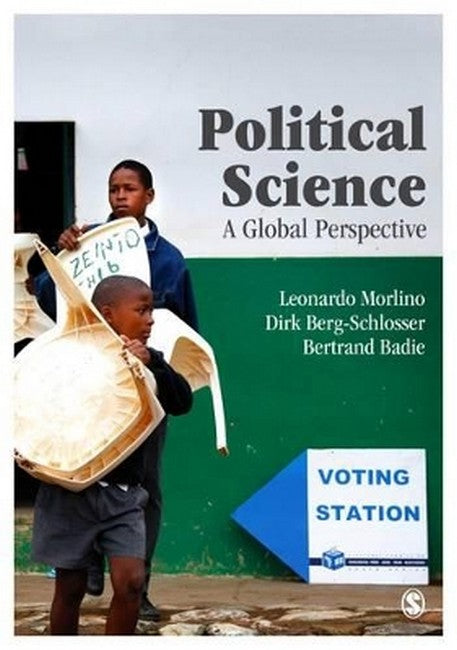Leonardo Morlino is Professor of Political Science and Director of the International Research Center on Democracies and Democratizations at LUISS, Rome. He was President of the International Political Science Association (IPSA) (2009-12). He is the author of more than 30 books and more than 200 journal essays and book chapters published in English, French, German, Spanish, Hungarian, Chinese, Mongolian, and Japanese. His most recent books include: Changes for Democracy (Oxford UP, 2011), Democracias y Democratizaciones (CIS, 2008); Democratization and the European Union: Comparing Central and Eastern European Post-Communist Countries (Routledge 2010, with W. Sadurski), International Actors, Democratization and the Rule of Law: Anchoring Democracy? (Routledge 2008, with A. Magen). He was also one of the three editors of the International Encyclopedia of Political Science (8 voll., Sage Publications, 2011), that won the Honorable Mention of Darthmouth Medal for reference publishing in all domains of knowledge. Morlino was Professor of Political Science at the University of Florence and at the Istituto di Scienze Umane in Florence and has held a number of visiting professorships. In 2002-03 he was the Bechtel Visiting Professor at Stanford's Graduate School of Business; in 1995 visiting fellow at the Hoover Institution; and in 1989-90 NATO Fellow of the Center for European Studies, Stanford University. His academic credentials also include stints as the Monte dei Paschi Fellow at St. Anthony's College, Oxford (2010), the Jemolo Fellow at Nuffield College, Oxford (2007 and 1998); visiting professor at the Juan March Institute, Madrid (1995-96); and visiting professor at the Institut d'Etudes Politiques, Paris (1993-95, 2006, 2009, 2013). Morlino is a leading specialist in comparative politics with expertise on Southern and Eastern Europe, with a focus on phenomenon of democratization. Now he is directing a new research on the impact of the 2008-14 economic crisis of the six European large democracies. Bertrand Badie is a French political scientist and international relations specialist. He is a professor at the Institut d'Etudes Politiques de Paris and researcher associated with the Centre d'etudes et de recherches internationales (CERI).
Request Academic Copy
Please copy the ISBN for submitting review copy form
Description
Preface Introduction: Origins of political science and definitions Part I: Background 1. Epistemological foundations and approaches 2. Research designs and methods 3. Relations with neighbouring disciplines Part II: Macro-politics 4. The social bases of politics 5. Democracies 6. Democratizations 7. Non-democratic regimes Part III: Governance 8. Government, Parliaments, Judiciary 9. Public administration and public policies Part IV: Meso- and Micro-politics 10. Political participation, social movements, protests, revolutions 11. Political Communication, Media 12. Interest Groups 13. Political Parties 14. Elections and electoral behavior Part V: International Politics 15. The globalization of inter-national politics 16. Regionalism and beyond Glossary Bibliography Index
This is a unique book, filling a genuine void. It is introductory but not meant for undergraduates but for the already educated. In sixteen chapters, it covers, not only the standard content of an introduction to political science book, but also discusses questions of epistemology, methodology and the interdisciplinary nature of the discipline, all with a global perspective. It is likely to become required reading for graduate students in political science who have received their undergraduate training in other disciplines but it would also offer an excellent refresher for those who studied political science as undergraduates. -- Ilter Turan What makes this book an exceedingly good introduction to Political Science is that the discipline's core concepts, theories, methods and the subfields into which it has branched out are presented in an unprecedented fashion: concise and yet broad-based and open-ended. These are qualities derived from its comprehensive global reach - an achievement that has many aspects to it. First, by recovering the diversity of the social contexts and of the intellectual backgrounds from which the "basics" emerged, their embedded nature comes out neatly. With it, the discipline's actual constitution as an empirical science is brought under a sharper focus: as the result of a long gestation and differentiation from neighbouring sciences- where the primacy of the Anglo-Saxon and Western intellectual lineages is set in a broader perspective. We note pluralism not only in the approach to rival interpretations of the relevant topics and issues but also in the choice of the supporting literature including also scholars from different parts of the emerging world - alongside references drawn from non-Western traditions. What the reader gets is more than what Morlino, Berg-Schlosser and Badie declare in their preface. More than "elementary politics from an advanced standpoint", their book has a truly formative dimension to it. On two accounts: In terms of training, it offers the incentives to permanently update and broaden the research fields, thanks to a system of open-ended information provided by the websites added to each chapter. In terms of scope, the book 's manifest global reach offers a most effective antidote against all kinds of prescriptivism. -- Lourdes Sola

